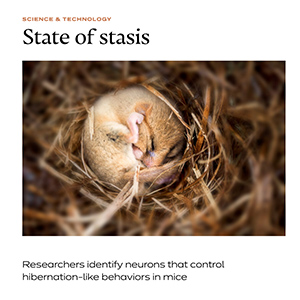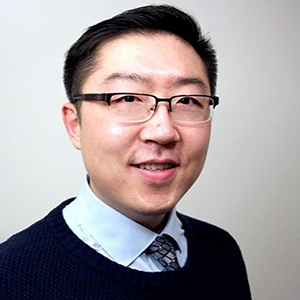
“State of Stasis” by Kevin Jiang
Harvard Medical School
Harvard Medical School neuroscientists have discovered a population of neurons that controls hibernation-like behavior, or torpor, in mice, revealing for the first time the neural circuits that regulate this state. By better understanding these processes in mice and other animal models, the authors envision the possibility of one day working toward inducing torpor in humans—an achievement that could have a vast array of applications, such as preventing brain injury during stroke, enabling new treatments for metabolic diseases or even facilitating travel to distant stars.
“The dream of suspended animation has long captivated the human imagination, reflected in countless works of mythology and fiction, from King Arthur and Sleeping Beauty to Captain America and Han Solo. By effectively pausing time itself for an individual...”

What was the most impactful part of your award-winning entry?
Suspended animation is staple of popular fantasy and science fiction. Discovering specific neurons that control a hibernation-like state means that we have a biological foothold to work on someday making that fantasy a reality.
What is one thing you learned from this experience?
I didn't know much about the extremely interesting biology of hibernation, or even what torpor actually was, until I started working on this story.
What challenge did you overcome?
This was a story on a highly technical neuroscience paper. It had a great hook for lay audiences, and the challenge was bridging that gap, making sure to do justice to the very complex science without losing sight of the audience.
What was the biggest challenge in writing about this topic?
This story was on a highly technical neuroscience paper. It had a great hook for lay audiences, and the challenge was bridging that gap, making sure to do justice to the very complex science without losing sight of the audience.
Contact
Kevin Jiang, kevin_jiang@hms.harvard.edu